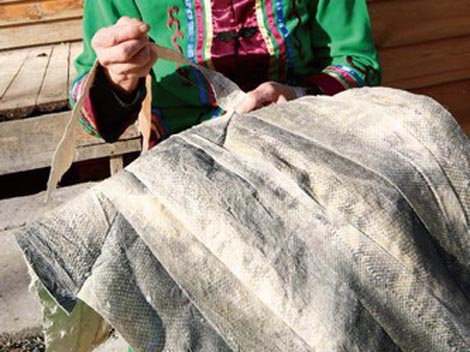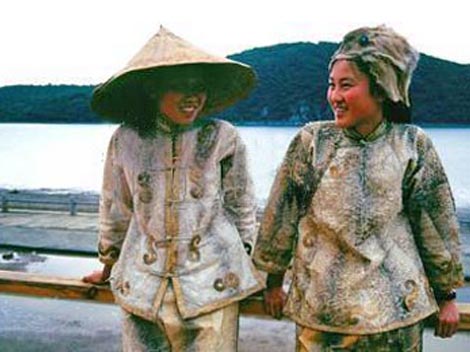
Women of the Hezhe ethnic minority marry in dresses of fish skin sewn with hand-twined animal tendons. Although made from primal material the finished article has many delicate flourishes, notably fret worked mosaics around the sleeves and waist.
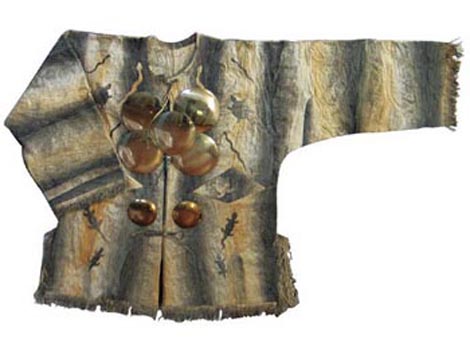
But why make a wedding dress out of fish skin? This is a cultural feature of the Hezhe minority, also called the "Fish Skin Tribe," the only ethnic minority to have cultivated the technique of fish skin dress making.
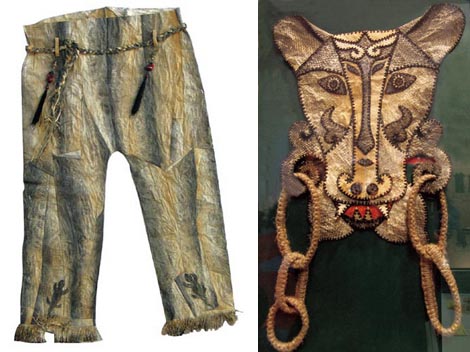
Great care is taken when preparing the material for this special gown. The skins of large fish, generally salmon, are chosen, carefully peeled and the scales removed. The skins are then hung on a door for one night to dry. Next comes designing a pattern and the actual dress making. This is done entirely by hand and takes several months to finish. In earlier times Hezhe women would begin work on the dress while their daughters were still children. A wedding gown made of fish skin, however, is a practical garment, being durable and warm as well as ornamental.
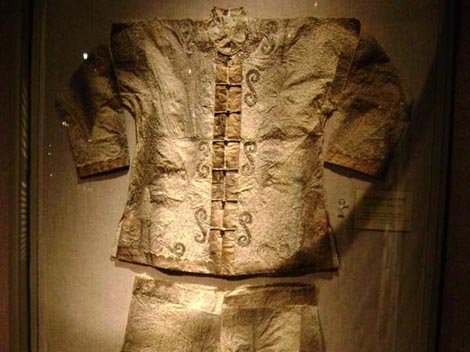
The natural patterns on fish skin give it a special shimmering beauty. But it is thick and difficult to penetrate with a needle. Making clothes from this fundamental material is hence a complicated, exacting and awkward process. To avoid damaging the skin, a length of cut bamboo rather than a knife is used for skinning. The stitching is done with a fish bone needle and animal tendon thread. As dozens of fish skins may be needed to make one wedding own, Hezhe dressmakers must be punctilious about appropriate matches of shape and color. But the end result and the joyful occasion on which a Hezhe mother's handiwork is worn, seen and admired compensates for all her labors.
